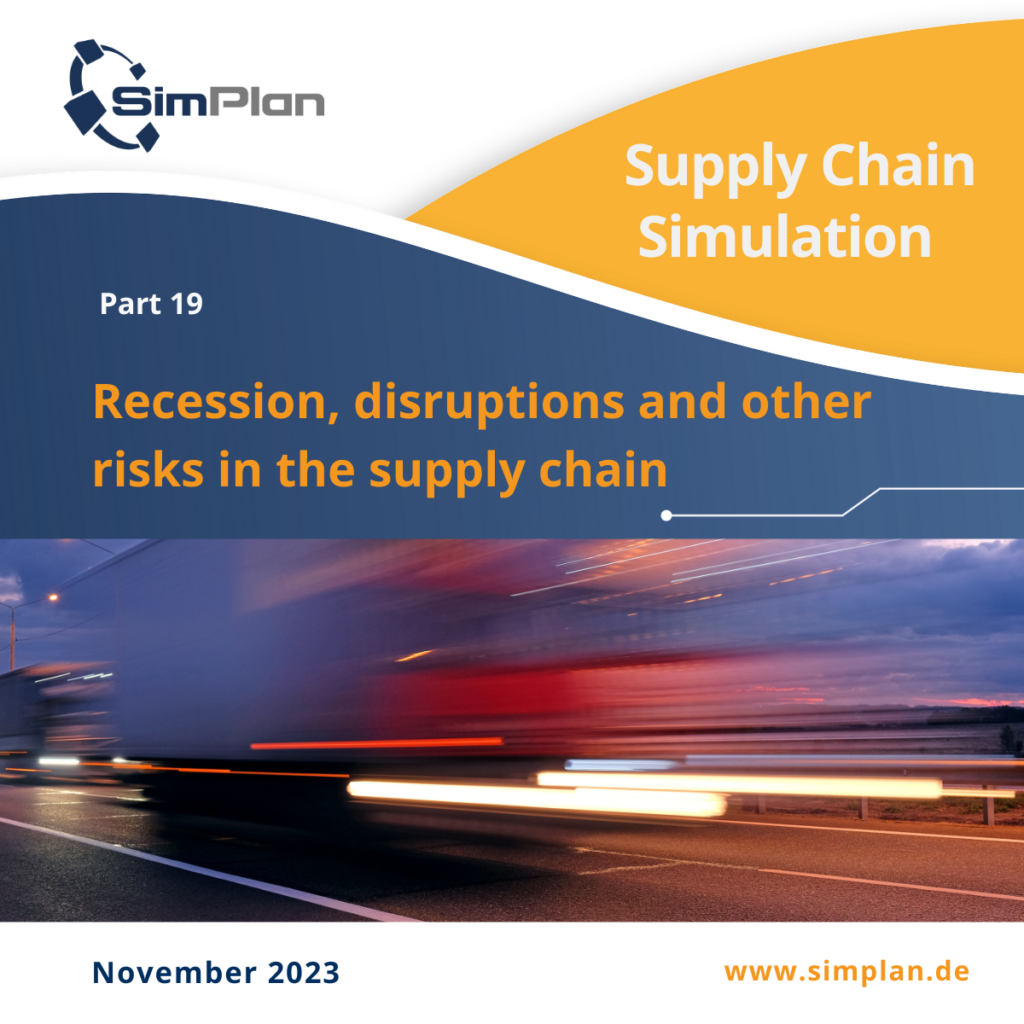Recession, disruption and other supply chain risks: challenges and solutions
The global economy is facing significant challenges, including market instability, falling demand, rising costs, the impact of COVID-19, the effects of climate change and geopolitical conflicts. These factors have already begun to affect global supply chains, resulting in unpredictable demand, uncertain product availability, inconsistent supplier performance and increased costs.
A PwC survey shows that more than two-thirds of US manufacturers are experiencing operational issues with their suppliers. This underscores the urgency for companies to address current risks and long-term disruptions.
Agility and resilience as the key to overcoming uncertainties
To meet these challenges, supply chains need to become more agile and more resilient. Agility means responding flexibly to changing customer needs, while resilience involves the ability to recover quickly from disruptions.
Examples of agile practices include companies like Amazon that adjust prices and inventory levels in real time to respond to competitors’ moves. Resilience is demonstrated when companies such as distilleries switch to the production of hand sanitiser during the COVID-19 pandemic.
Digital transformation for a future-proof supply chain
Digital transformation plays a crucial role in creating agile, resilient and efficient supply chains. Modern technologies offer improved transparency, promote collaboration and enable better planning.
Digital supply chains provide real-time visibility of supplier performance, which helps to identify potential gaps at an early stage. By connecting different stakeholders, companies can respond more quickly to market changes.
Dynamic simulation for optimised supply chains
Dynamic simulation models play a crucial role, providing supply chain managers with a comprehensive set of tools. These models enable the detailed end-to-end planning of supply chains, the design of supply chains and the analysis of processes. By identifying and analysing risks, companies can make their supply chains more agile and resilient.
In a constantly changing environment, it is crucial to remain competitive while being prepared for risks. Through innovation in business processes and the use of advanced technologies such as simulation and optimisation, companies can ensure that their supply chains are not only able to withstand current challenges, but are also prepared for future uncertainties.


